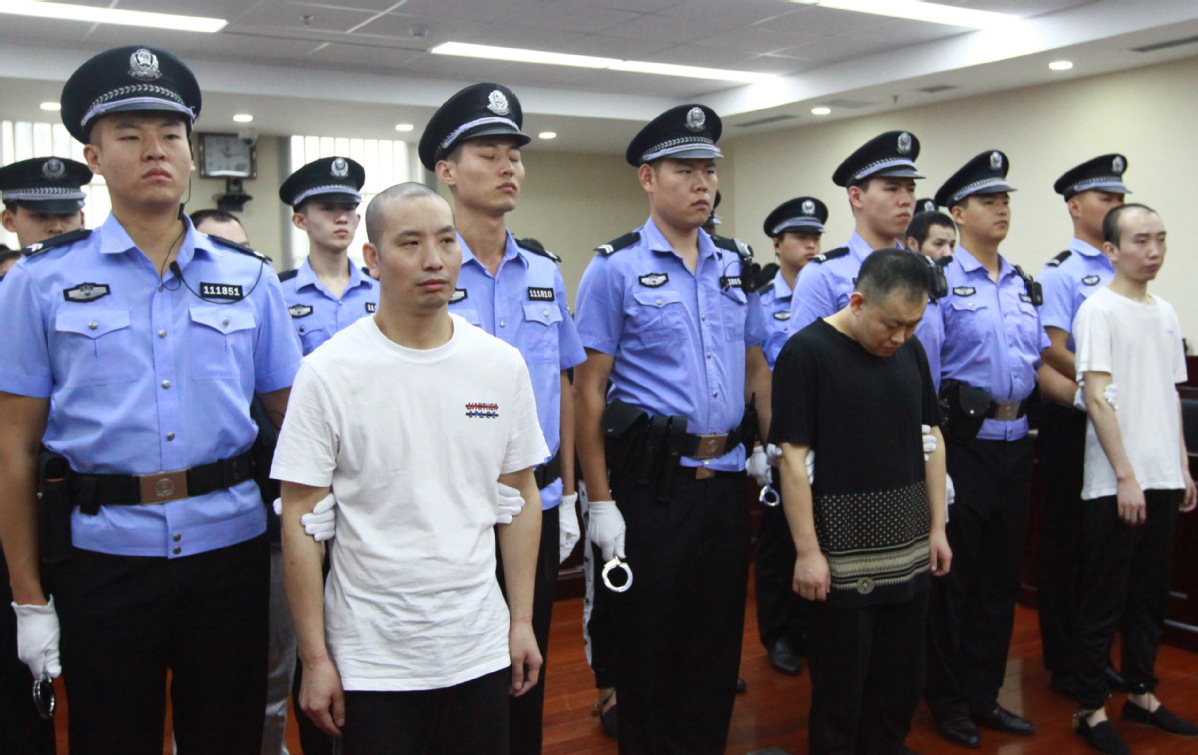Court punishes organized exam cheaters


A case in which six people were jailed for helping dozens of students cheat on China's national exam for graduate schools shows that such operations are becoming more organized and sophisticated, according to a Beijing judge.
On Tuesday, Zhang Wuya and five accomplices were sentenced to prison terms ranging from 20 months to four years for using high-tech equipment to provide answers to 33 students during the exam in December 2016.
The group provided the test-takers with wireless transmitters and receivers, and instructed them to read the questions aloud. Their voices were picked up by off-site researchers, who used textbooks and other resources to send them the correct answer.
Haidian District People's Court, which heard the case, did not disclose how much students were charged for the service. However, the six defendants received fines ranging from 10,000 to 40,000 yuan ($1,460 to $5,840).
Cao Xiaoying, a judge at the court, said the case is believed to be the largest involving organized cheating in Beijing since the Criminal Law was amended in 2015 to outlaw facilitating cheaters or hiring others to take a State-level exam. The crime is punishable by up to seven years in prison.
She said the illegal use of wireless equipment to cheat seriously jeopardizes the integrity of the examination and called for heavier punishments and tougher regulations to stamp out the problem.
The court said Zhang established an education company in Beijing and came up with the idea of using wireless equipment to help students cheat, while fellow defendants Lyu Shilong, Zhang Xiayang and Zhang Zongqun were responsible for recruiting test-takers.
Zhang Wuya purchased signal transmitters, signal receivers and other equipment, while the others handed out the receivers and transmitters to the students, as well as organized mock tests to check the equipment.
Two other accomplices, Li Qian and Zhang Feng, were tasked with recruiting people as off-site researchers and providing answers to test questions.
Lyu and Zhang Xiayang also took part in the exams and were among the students who received the answers. It is not yet known what punishments the other test-takers who cheated will face.
According to figures from the court, the capital has recorded 34 cases of cheating in various national exams since 2016, including those for prospective graduate students and teachers.
Wang Jingbo, a professor at China University of Political Science and Law, said cheating has formed a profit chain consisting of various criminal activities and involves a wider scope of students. The ways that students cheat are also constantly changing, and efforts to prevent cheating should be enhanced.
"This is necessary since cheating on exams shows not only a lack of personal integrity, but it's also a serious violation of the law and regulations. For exams that affect students' future development, fairness must be guaranteed," Wang said.
The Central Commission for Guiding Ethics and Cultural Progress launched a campaign on Monday to eliminate unethical or dishonest behavior in economic and social areas, including cheating on exams.
- Indonesian doctors gain hands-on cardiology training in Lanzhou
- Man sentenced to death for killing ex-girlfriend in Anhui
- A US youth reflects on the 'cave-dwelling conversation'
- China unveils first AI model to gauge weather's impact on stock market
- Tianjin launches youth program to cultivate university talent for tech market
- Local farmers combat desertification in Moyu county of Xinjiang





































